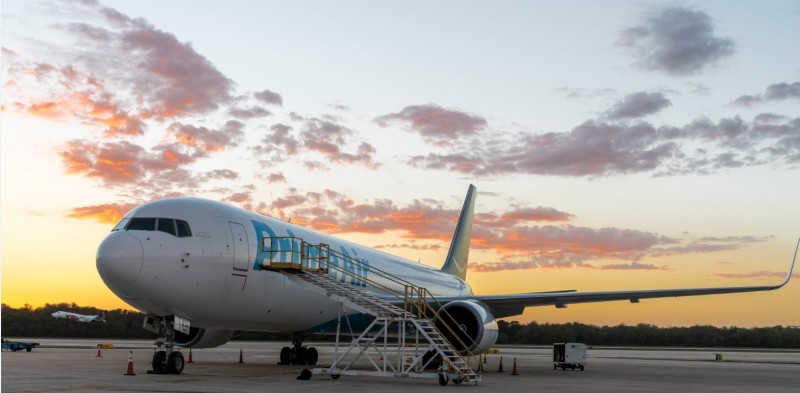No products in the cart.
The move away from Amazon express ops likely to benefit FedEx
FedEx’s decision to end its U.S. express operations for Amazon will probably benefit the company in the long run, according to a Seaport Global analysis.
In its note, Seaport focused on the rapid expansion of e-commerce from companies other than Amazon, and said the move away from its Amazon operations will allow FedEx to pursue business with smaller e-commerce customers. The move is also likely to benefit Amazon’s other logistics partners, including Atlas Air Worldwide Holdings, Air Transport Services Group (ATSG) and UPS, which may see increased business from the e-commerce giant in the near-term.
Amazon will need to rely on Atlas and ATSG for additional lift in FedEx’s absence, which “could improve their aircraft utilization and additional block hour flying,” Seaport Global said.
The integrator announced on Friday that it won’t renew its FedEx Express U.S. domestic contract with Amazon, though the decision won’t impact ground deliveries or international operations. Seaport Global pointed out that the move shouldn’t come as a surprise, since Amazon has been building its own in-house network with Atlas and ATSG. FedEx said in Friday’s statement that U.S. package volume from online shopping is expected to double by 2026.
The e-tailer’s rise as a competitive logistics company in its own right has been pushing FedEx and UPS for faster, cheaper deliveries. Especially since Amazon only represented 1.3% of FedEx revenue in 2018, it’s likely that FedEx wanted to end the relationship before Amazon did, Seaport said. Another company that had previously provided logistics services for Amazon, XPO Logistics, lost $600 million in sales when Amazon abruptly stopped working with them in December.
Amazon’s rise in the logistics industry means that the e-tailer is transforming from a logistics customer to a competitor. “Amazon is learning plenty from its Prime Now product in select markets,” Seaport Global wrote in its analysis, pointing out that it will eventually make sense for the company to move towards in-house delivery products. In noting potential risks for FedEx, the Seaport note added that increased competition could put a damper on FedEx’s growth and place downward pressure on freight rates, potentially hurting revenue.
Amazon filed a Form 10-K statement with the Securities and Exchange Commission (SEC) earlier this year that, under the “Risk Factors” section, for the first time listed “transportation and logistics services” as an entity that poses “intense competition.” The company has also officially declared itself equal partners with the U.S. Postal Service in its prompt delivery services. Early last year, Amazon moved closer to direct competition with companies like FedEx when it kicked off a new logistics service called “Shipping With Amazon,” and began offering significant discounts to customers using their fulfillment services. FedEx started offering retailers late-night shipping at the beginning of this year in an effort to compete with the e-tailer.
















